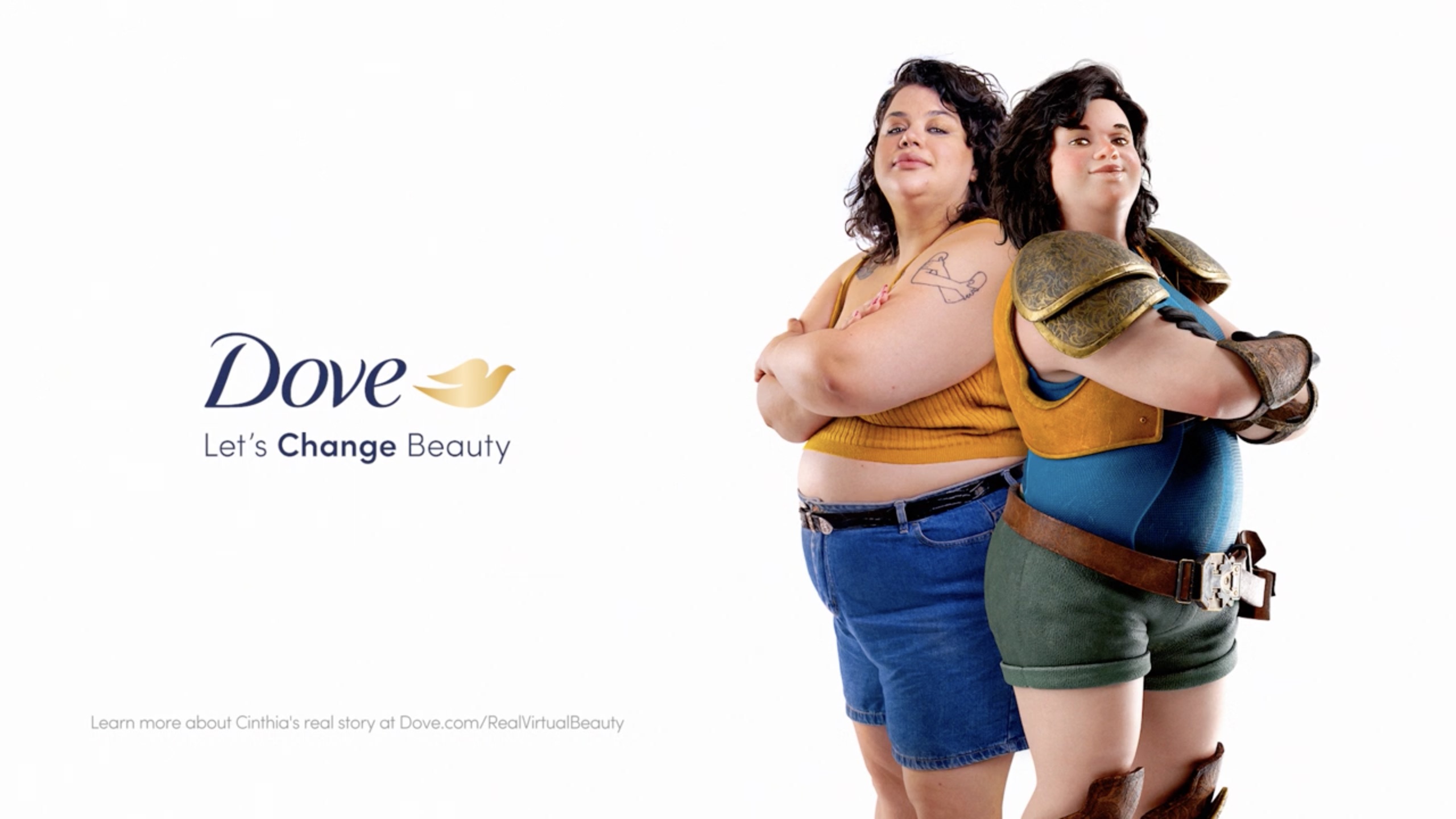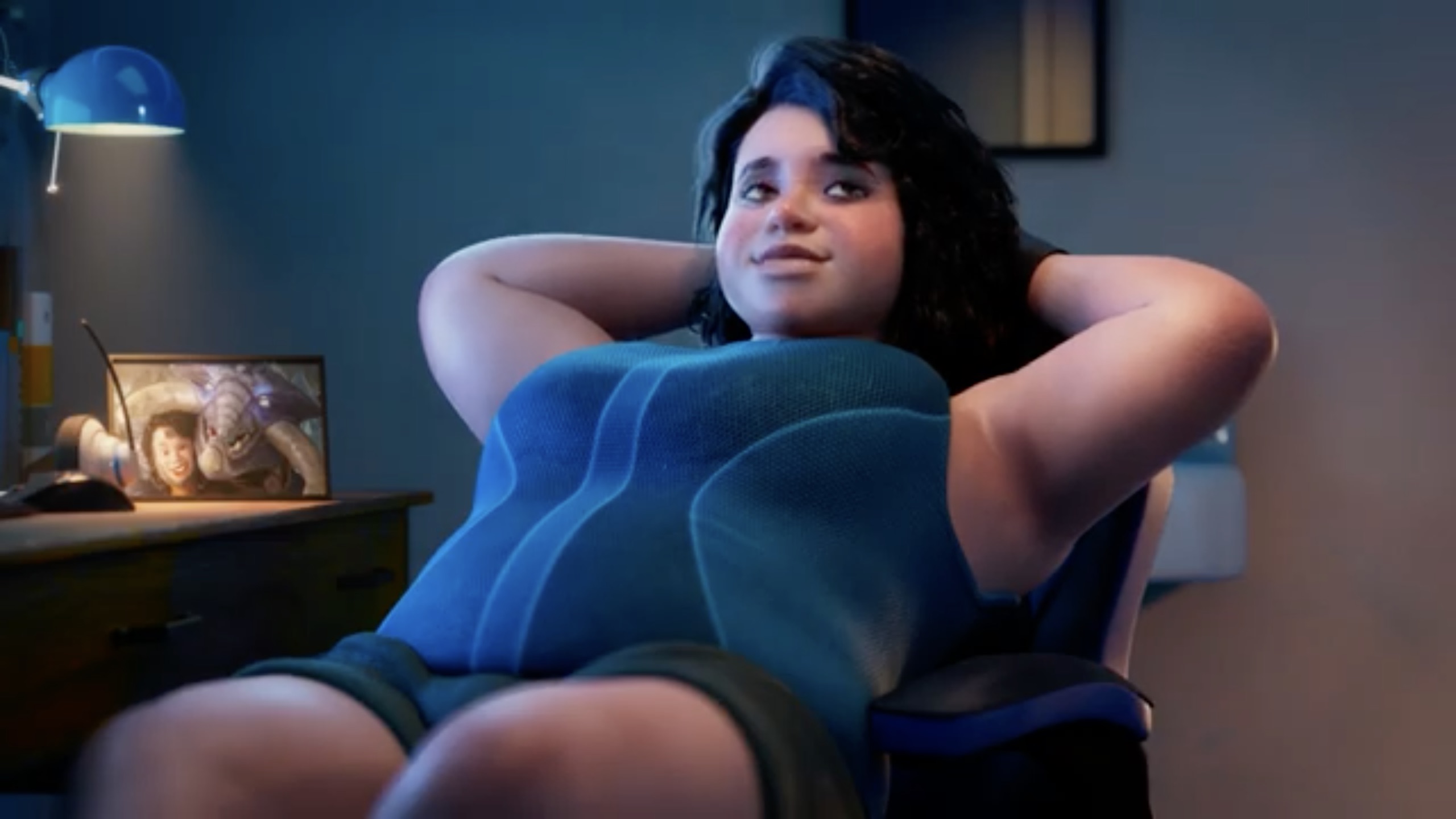Game theory

According to Dove—the brand of soap, of all things—74% of girls feel underrepresented in video games.
How the hell do they think boys feel? How many video game characters are portrayed as pasty-, spotty-faced bespectacled youths, with the physique of a garden rake and the charisma of a dishcloth?
Do they really think that the testosterone-beladen men who're represented as heroes in video games are actually playing them? No, of course they're not! They're out there, in the real world, drinking beer; brawling with other manly men; and shagging anything with a pulse.
But Dove is now championing for video game playable characters to be body positive
women. So that body positive
females can feel represented. Sheesh! (exclamation)
I'm just glad I don't play the bloody things myself.
Dove's new marketing slogan: I wash myself with a rag on a stick.
Grand Muff Twerkin, commenting on Dove Soap Saves Gaming!, It'sAGundam
(LOLZ)
The scent of reality...
New research from Dove, co-published with the NGO Women in Games and the Centre for Appearance Research (CAR), reveals that these unrealistic beauty standards in the gaming industry make girl gamers feel misrepresented. Girls agree that the lack of inclusivity in gaming is an issue; 74% of girls wish more female characters in games looked like women in real life, while 62% of women feel misrepresented in gaming.
anon, We’re bringing Real Beauty to the virtual world, Dove
Okay. While ¾ of girls feel misrepresented, only ⅔ of women do. Fair enough, girls are going through physiological and psychological strains of puberty, which may affect their self-image and self-esteem. Or it could just be zoomers zooming. (snowflake) (shrug)
But how were these data derived? What was the methodology behind the research—controlling for survey selection bias as a confounding factor, for example—and where are the detailed findings reported? Dove claims the research was published, but where? There's no link on their website; which would be the obvious place to put one.

We’re on a mission to challenge and change female representation in video games, and help make gaming a positive space for women and girls.
anon, How we’re making virtual beauty real, Dove
There's a theory that women/girls need to feel represented, whereas men/boys just want to immerse themselves in the story—boys become Batman, girls change Batman to be like them. This applies to films, as well as games. I guess we males just function on a more elementary level. (shrug)
Dove is owned by Unilever, which also owns…Ben & Jerry's, one of the contributors to the [cough] body positive
demographic.
 At the bottom of the page viewed on mobile is a notification that the hamburger menu is collapsed. A hamburger menu is the menu icon usually seen at the top left of a web page on mobile devices. Still, I couldn't help but think how apt it was under the circumstances.
At the bottom of the page viewed on mobile is a notification that the hamburger menu is collapsed. A hamburger menu is the menu icon usually seen at the top left of a web page on mobile devices. Still, I couldn't help but think how apt it was under the circumstances.
Out of curiosity, I contacted Dove UK with a request to see the report. I received a very nice holding reply from their Consumer Engagement Centre. Is that the same as customer services? (confused)
That was on 26th May. Unsurprisingly, I've heard nothing since.
I finally received a reply, of sorts. The research was conducted on behalf of Dove by Edelman Data & Intelligence, prior to the launch of Dove's Real Virtual Beauty campaign. It's not in the public domain, so it hasn't been published or co-published
after all; presumably all the better for curtailing thorough critique of the methods used.
The research has not been published in the public domain, it was commissioned and produced prior to the launch of the Real Virtual Beauty campaign. Dove worked with Edelman Data X Intelligence to run two research studies, one in North America (USA and Canada) and one in the UK, during September 2021 and February 2022 respectively. The statistics cited in the campaign are obtained from this research. In the North American based research study, Edelman Data X Intelligence conducted a 25-minute online survey with women gamers (aged 18-55 years old) and girl gamers (10-17 years old), who game at least once a month. In the USA, the team spoke to 1,554 women and 545 girls. In Canada, 821 women and 262 girls. In the UK based research study, Edelman X Data Intelligence conducted a 15-minute online survey with women gamers (18-55 years old) and girl gamers (10-17 years old) who game at least once a month. The team spoke to 750 women, and 250 girls in the UK.
Dove Consumer Engagement Centre
There's no mention of how the respondents were recruited, what measures were taken to determine or ensure their representativeness of the wider female gaming population, or how the survey questions were formulated, for example; therefore, it's anyone's guess as to how broadly applicable the findings are. But Edelman Data & Intelligence conducts and analyses surveys for marketing purposes, so I guess all that balance and openness nonsense is unnecessary as long as you get an answer you can work with. Marketers gonna market, innit?
Either way, I suspect this is as far as it goes.